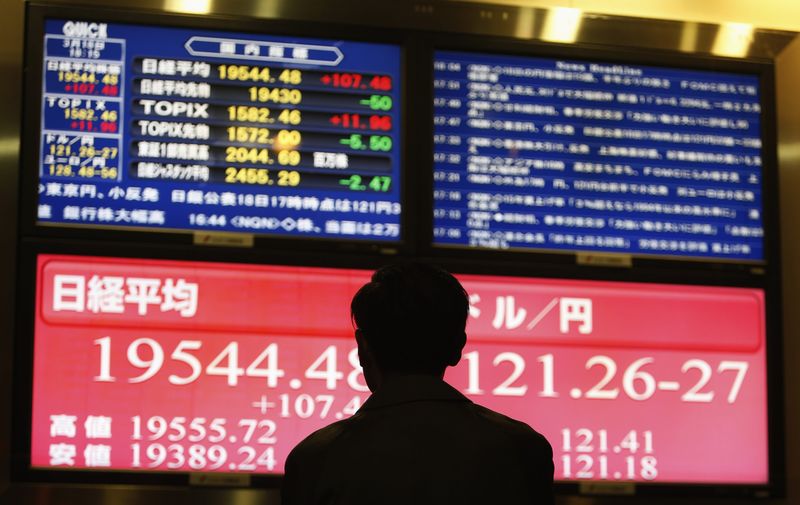Investing.com - Asian markets gained in afternoon trade on Tuesday, with Apple (NASDAQ:AAPL) suppliers outperforming after the U.S. tech giant filed an appeal to overturn a sales ban in China of some of its iPhones, CNBC reported.
The news came after Qualcomm (NASDAQ:QCOM) reportedly won the patent battle on Monday in a Chinese court to obtain two injunctions against Apple in selling seven models of the iPhone. The firm alleged that Apple infringed on Qualcomm’s patents.
Apple’s shares bounced back 0.66% in the closing time on the firm’s appeal decision, after a nearly 3% slide in its stocks over the legal battle with Qualcomm.
Hong Kong-listed Sunny Optical Technology Group Co Ltd (HK:2382) rose more than 4%, while Taiwan-based TSMC gained almost 2%.
Meanwhile, traders also paid close attention to U.S.-China relations, after Reuters reported that Chinese Vice Premier Liu He, U.S. Treasury Secretary Steven Mnuchin and Trade Representative Robert Lighthizer spoke on the phone to discuss the roadmap for the next stage of their trade talks.
The conversation came after U.S. President Donald Trump and Chinese President Xi Jinping agreed to pause the planned increase of Jan.1 U.S. tariffs to 25% from 10% on $200 billion of Chinese goods.
However, tensions between the two countries remained high following the arrest of the CFO of China’s Huawei Technologies.
The Shanghai Composite and the Shenzhen Composite traded 0.1% and 0.3% higher respectively by 1:10 AM ET (05:10 GMT). Hong Kong’s Hang Seng Index slipped 0.2%.
Japan’s Nikkei 225 declined 0.3%. Softbank Corp. (T:9984) jumped almost 3% after the company announced shares of its mobile unit IPO would be priced at 1,500 yen apiece.
Elsewhere in Asia, South Korea’s KOSPI was little changed at 2,053.6. Australia’s ASX 200 edged up 0.4%.
In other news, U.K. Prime Minister Theresa May called off a parliamentary vote for the Brexit deal, deferring it until a later date, fearing that the deal would have not gained the required votes to pass through parliament amid disagreements among UK lawmakers concerning the Irish border, or backstop issue.
The move raised further uncertainty about the country's exit from the European Union, and the British pound fell following the news.
